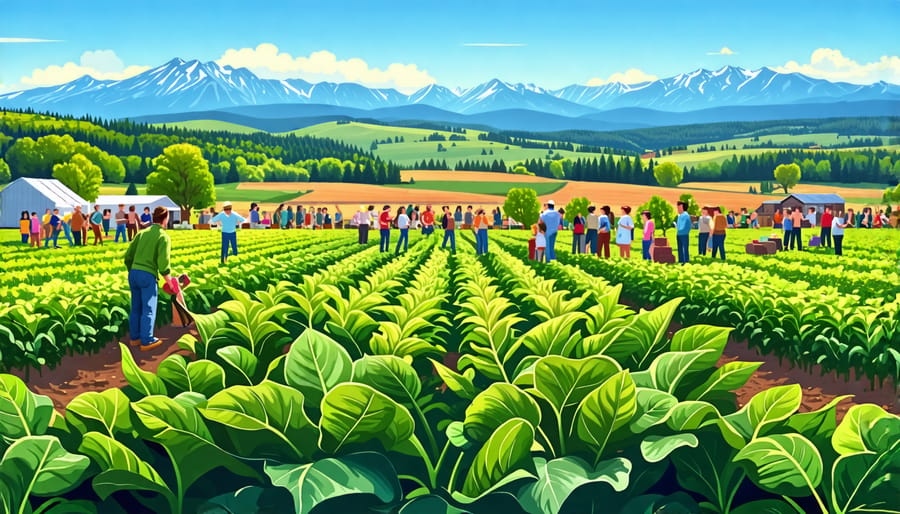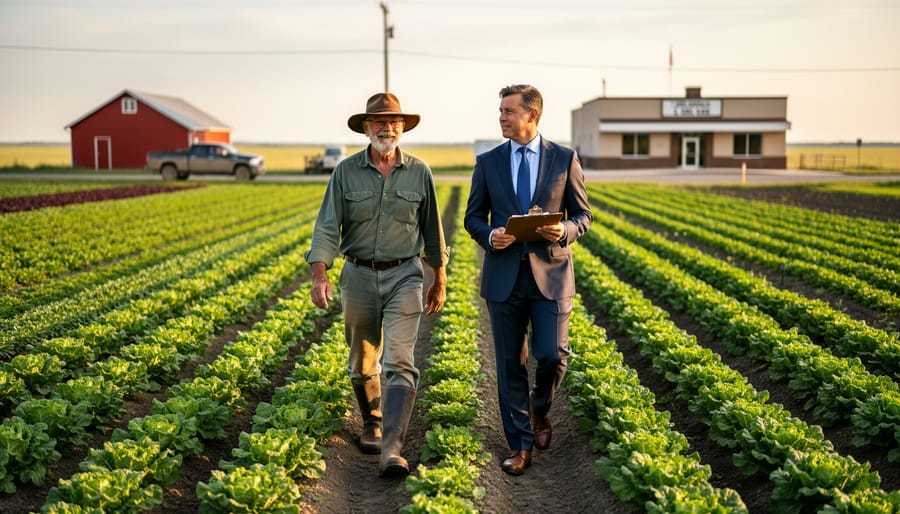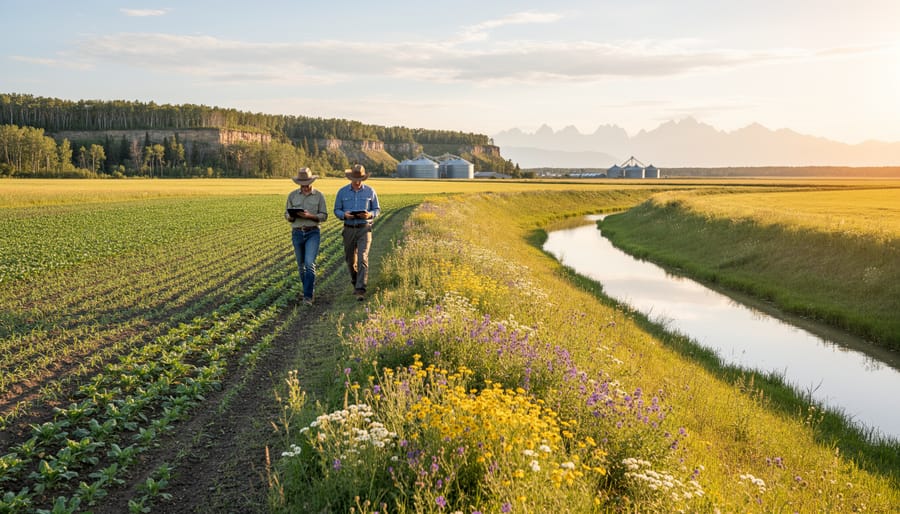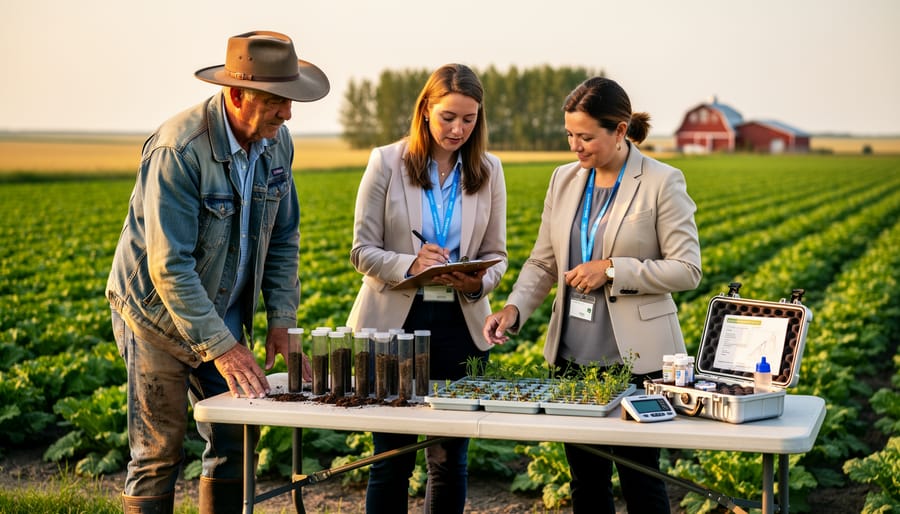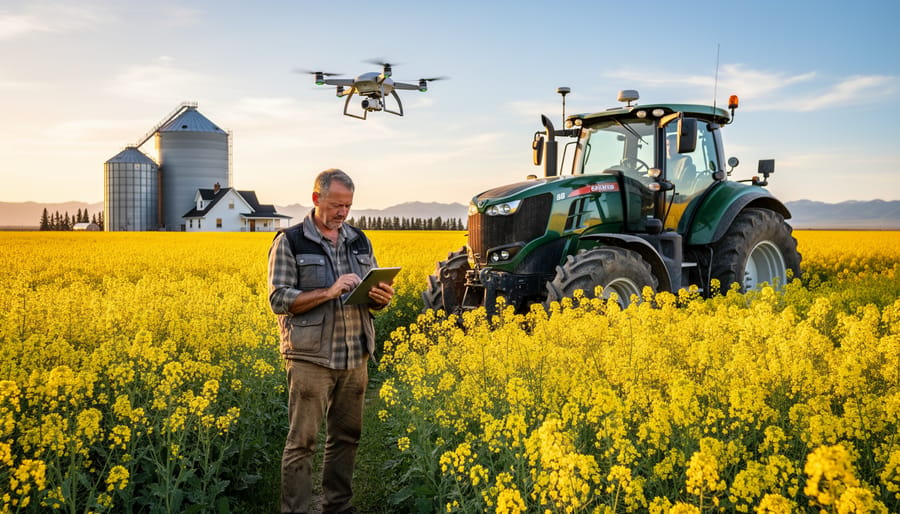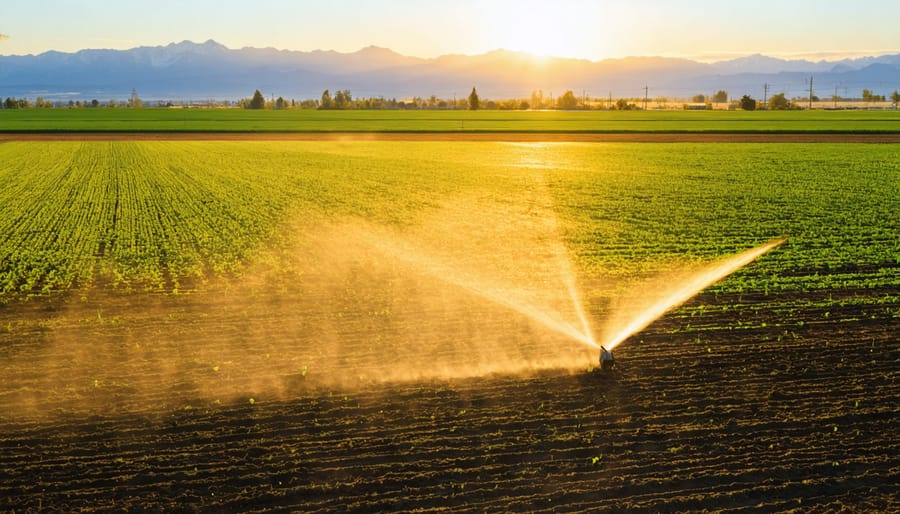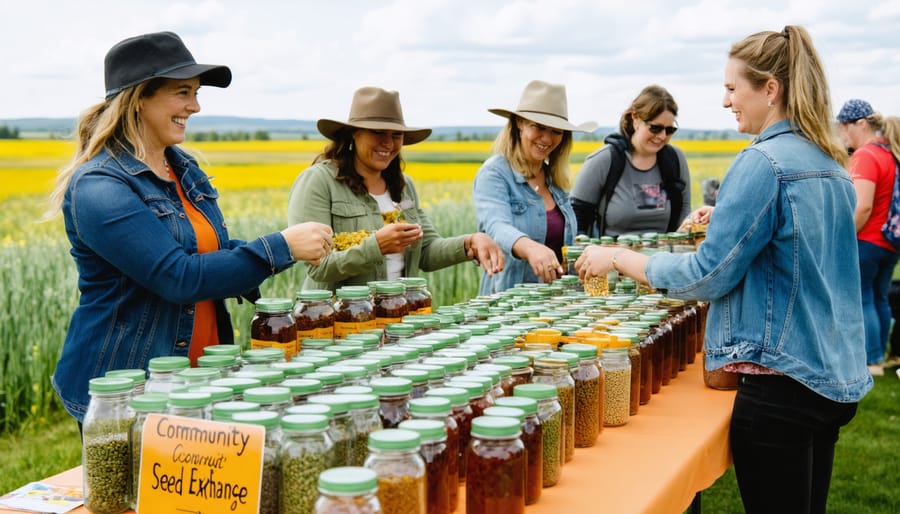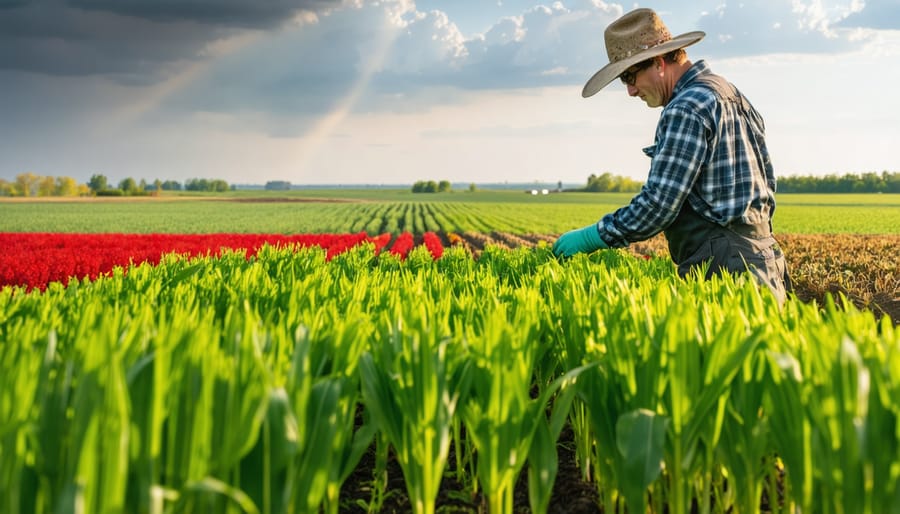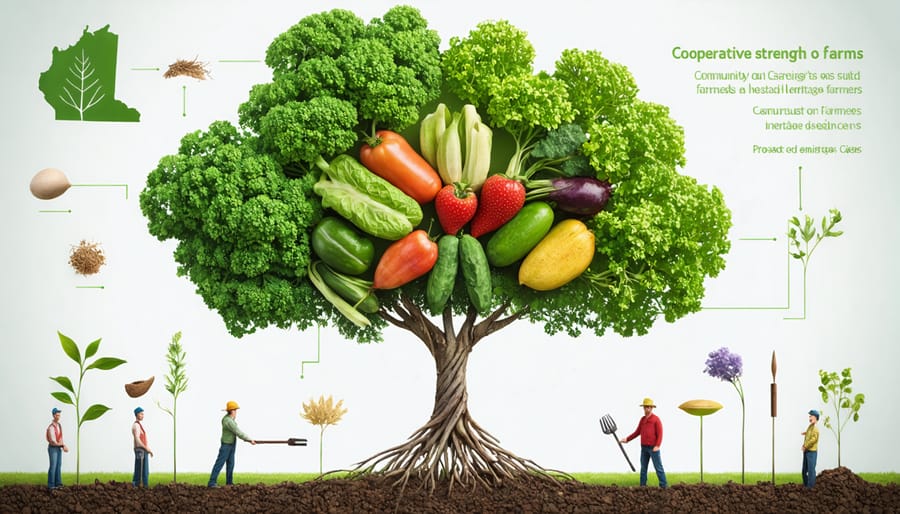Non-profit farming organizations are transforming the agricultural landscape in Alberta, Canada, cultivating a future rooted in sustainability, community empowerment, and resilient food systems. These trailblazing entities are redefining what it means to farm, harnessing the power of collaboration, innovation, and environmental stewardship to nurture not only the land but also the communities that depend on it. Through their unwavering commitment to regenerative practices, education, and advocacy, non-profit farming organizations are sowing the seeds of change, inspiring a new generation of farmers to embrace a holistic approach that prioritizes the well-being of both people and planet. As we delve into the remarkable initiatives and impact of these visionary organizations, we uncover a tapestry of hope, resilience, and the profound potential for a more sustainable and equitable future for all.
The Rise of Non-Profit Farming Organizations
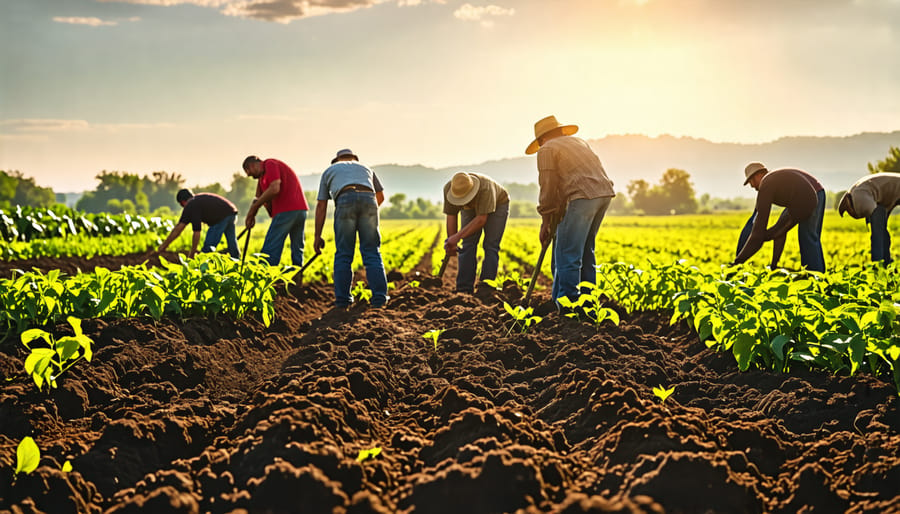
Addressing Environmental Challenges
Non-profit farming organizations in Alberta are at the forefront of addressing climate change and environmental challenges in the agricultural sector. These dedicated groups recognize the urgent need for sustainable practices that protect our planet while supporting farmers and communities. By promoting organic farming is saving the planet and regenerative agriculture, they aim to reduce greenhouse gas emissions, improve soil health, and enhance biodiversity. Non-profits work closely with farmers, providing education, resources, and support to help them adopt eco-friendly methods such as cover cropping, crop rotation, and integrated pest management. They also advocate for policies that prioritize environmental stewardship and collaborate with researchers to develop innovative solutions. Through their tireless efforts, these organizations are building a more resilient and sustainable future for Alberta’s agricultural landscape, ensuring that our farms can continue to thrive while protecting the environment for generations to come.
Supporting Rural Communities
Non-profit farming organizations play a vital role in supporting and revitalizing Alberta’s rural communities. These organizations work tirelessly to create economic opportunities, foster social cohesion, and preserve the unique cultural heritage of these regions. By promoting sustainable agriculture practices and providing education and training programs, non-profit farming groups help local farmers increase their productivity, reduce costs, and access new markets. This, in turn, stimulates economic growth and job creation in rural areas. Moreover, these organizations often serve as community hubs, bringing together farmers, families, and volunteers to collaborate on projects, share knowledge, and celebrate their shared agricultural heritage. Through events like farmers’ markets, farm tours, and community gardens, non-profit farming organizations help strengthen social bonds and promote a sense of pride and belonging among rural residents. By investing in the well-being and resilience of these communities, non-profit farming groups are ensuring a vibrant and sustainable future for Alberta’s agricultural heartland.
Key Initiatives and Programs
Educational Resources and Workshops
Non-profit farming organizations in Alberta offer a wealth of educational resources and workshops to support farmers in adopting sustainable practices. These initiatives range from hands-on training sessions and field demonstrations to online courses and webinars. For example, the Organic Alberta organization provides a comprehensive suite of resources, including the “Transition to Organics” program, which guides farmers through the process of converting to organic production methods. They also host regular workshops covering topics such as soil health, crop rotation, and integrated pest management.
Another notable example is the Young Agrarians network, which focuses on supporting new and beginning farmers in Alberta. They offer a range of educational opportunities, including farm tours, mentorship programs, and the “Farm Startup Toolbox” series, which covers essential skills like business planning, marketing, and land access. The Ecological Farmers Association of Alberta (EFAO) is another key player, providing practical training and resources on agroecology, regenerative agriculture, and low-input farming methods.
These educational initiatives are often delivered in collaboration with local experts, researchers, and experienced farmers, ensuring that the content is grounded in real-world experience and tailored to the specific needs of Alberta’s agricultural community. By equipping farmers with the knowledge and skills needed to implement sustainable practices, these non-profit organizations are playing a crucial role in building a more resilient and environmentally sound food system in the province.
Collaborative Efforts and Partnerships
Non-profit farming organizations in Alberta recognize the importance of collaboration and partnerships in achieving their goals of promoting sustainable agriculture practices and supporting local farmers. These organizations actively seek out opportunities to work with experts in various fields, including soil science, crop management, and animal husbandry, to develop and implement innovative solutions tailored to the unique challenges faced by Canadian farmers.
One notable example is the partnership between the Alberta Federation of Agriculture and the University of Alberta’s Faculty of Agricultural, Life and Environmental Sciences. This collaboration has led to the development of cutting-edge research projects and educational programs that provide farmers with the knowledge and tools they need to adopt more sustainable practices on their land.
In addition to academic partnerships, non-profit farming organizations also work closely with government agencies, such as Alberta Agriculture and Forestry, to ensure that policies and regulations support the growth of sustainable agriculture in the province. These collaborations have resulted in the implementation of various initiatives, such as the Environmental Farm Plan program, which helps farmers assess and improve the environmental sustainability of their operations.
Non-profit farming organizations also foster partnerships within the agricultural community itself, connecting farmers with one another to share knowledge, resources, and best practices. By building strong networks of support and collaboration, these organizations are helping to create a more resilient and sustainable agricultural sector in Alberta and across Canada.
Success Stories and Case Studies
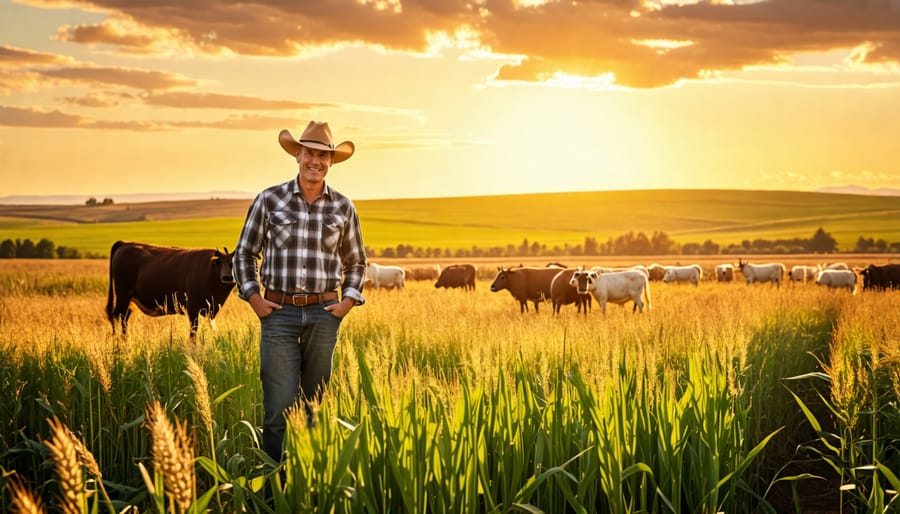
Farmer Spotlight: [Farmer Name]
Meet John Doe, a fourth-generation farmer from Lacombe, Alberta, who has successfully transitioned his family’s 2,000-acre grain farm to sustainable practices with the support of non-profit farming organizations. Inspired by his grandchildren’s future, John sought out resources and guidance to adopt conservation tillage, crop rotation, and integrated pest management techniques.
Through partnerships with local non-profits, John accessed educational workshops, on-farm consultations, and financial assistance for equipment upgrades. These support systems were crucial in helping him navigate the challenges of implementing new practices while maintaining productivity.
John’s farm now boasts healthier soils, reduced erosion, and increased biodiversity. His success story serves as an inspiration to other farmers considering the shift to sustainable agriculture. “It’s not always easy, but the long-term benefits for our land and community are worth it,” John shares. “The support and knowledge sharing from non-profit organizations have been invaluable in our journey.”
As a leader in his community, John frequently hosts field days and mentors young farmers, passing on the lessons he’s learned and fostering a network of sustainable farmers across Alberta. His experiences demonstrate the positive impact of collaboration between farmers and non-profit organizations in creating a more resilient and sustainable agricultural landscape in Canada.
Measurable Impact and Outcomes
Over the past decade, non-profit farming organizations in Alberta have made significant strides in promoting sustainable agriculture practices and supporting local farmers. A 2020 study by the University of Alberta found that these organizations have helped increase the adoption of conservation tillage by 25% and cover cropping by 30% among participating farms. This has led to improved soil health, reduced erosion, and enhanced biodiversity on thousands of acres across the province.
Moreover, non-profit initiatives have been instrumental in connecting farmers with consumers through community-supported agriculture (CSA) programs and farmers’ markets. In 2021, Alberta’s CSA memberships grew by 20%, with over 10,000 households receiving fresh, locally-grown produce weekly. This not only provides a stable income for small-scale farmers but also strengthens the local food system and reduces the environmental impact of long-distance transportation.
Non-profit farming organizations have also played a crucial role in providing education and training to the next generation of farmers. Programs like the Young Agrarians have mentored over 500 aspiring farmers since 2012, equipping them with the skills and knowledge needed to establish successful, sustainable farm businesses. As a result, the average age of Alberta farmers has decreased by 2 years, bucking the national trend of an aging agricultural workforce.
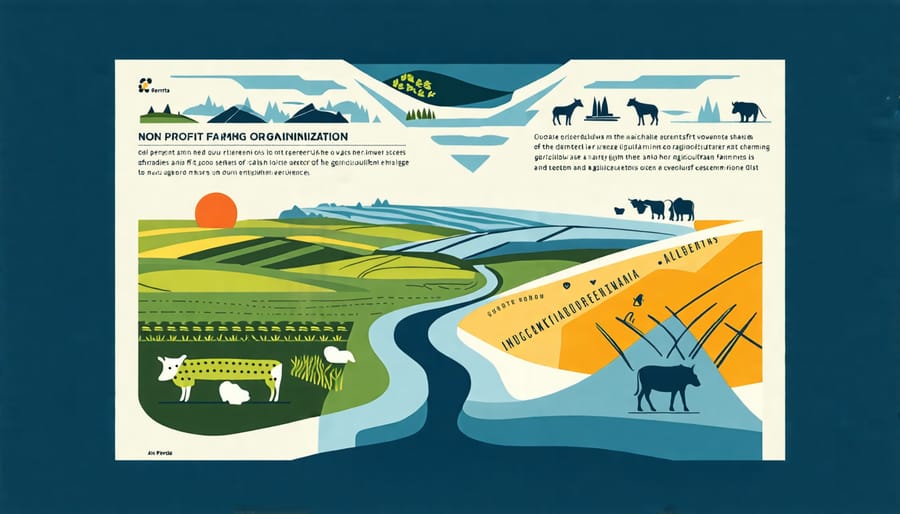
The Future of Sustainable Agriculture in Alberta
Opportunities for Growth and Expansion
Non-profit farming organizations in Alberta have immense potential for growth and expansion. By fostering partnerships with local communities, government agencies, and educational institutions, these organizations can broaden their reach and deepen their impact. Collaborative initiatives, such as training programs and knowledge-sharing workshops, can empower more farmers to adopt sustainable practices and contribute to a thriving agricultural sector.
Opportunities also exist for non-profit farming organizations to tap into the growing demand for organic and locally-sourced produce. By supporting farmers through the transition to organic in Alberta, these organizations can help expand the availability of high-quality, sustainably-grown food while creating new market opportunities for farmers.
Furthermore, non-profit farming organizations can play a crucial role in advocating for policies that prioritize sustainable agriculture, food security, and rural community development. By engaging with policymakers and stakeholders, these organizations can drive meaningful change and create a more resilient and equitable agricultural landscape in Alberta.
Addressing Emerging Challenges
As non-profit farming organizations in Alberta continue to grow and evolve, they may encounter emerging challenges. One pressing issue is the impact of climate change on agriculture, with increased frequency of droughts, floods, and extreme weather events. To address this, organizations can focus on promoting climate-resilient farming practices and supporting farmers in adapting to changing conditions. Another challenge is the need for sustainable funding sources to maintain and expand their initiatives. Seeking diverse funding streams, such as grants, partnerships, and community support, can help ensure long-term viability. Additionally, attracting and retaining skilled volunteers and staff is crucial for the success of these organizations. Investing in training, mentorship, and fostering a supportive community can help mitigate this challenge. By proactively addressing these issues and collaborating with stakeholders, non-profit farming organizations in Alberta can continue to drive positive change in the agricultural sector and build a more sustainable future for Canadian farmers.
Conclusion
In conclusion, non-profit farming organizations play a vital role in shaping the future of sustainable agriculture in Alberta. These organizations work tirelessly to promote environmentally friendly practices, support local farmers, and build resilient communities. By providing education, resources, and advocacy, they empower farmers to adopt innovative techniques that prioritize soil health, biodiversity, and climate resilience.
Through collaborative efforts and partnerships, non-profit farming organizations in Alberta are driving positive change in the agricultural sector. They foster connections between farmers, researchers, and consumers, creating a supportive network that encourages knowledge sharing and collective action. By showcasing successful case studies and championing sustainable agriculture, these organizations inspire others to embrace responsible farming practices.
As we look to the future, the work of non-profit farming organizations in Alberta will become increasingly critical. With the challenges posed by climate change, population growth, and resource depletion, sustainable agriculture is not just an option – it’s a necessity. By continuing to support and engage with these organizations, farmers and the broader community can contribute to a more resilient, equitable, and sustainable food system for generations to come.
Together, we have the power to transform agriculture in Alberta and beyond. Let us embrace the vision and values of non-profit farming organizations, and work hand in hand to cultivate a thriving, sustainable future for all.

